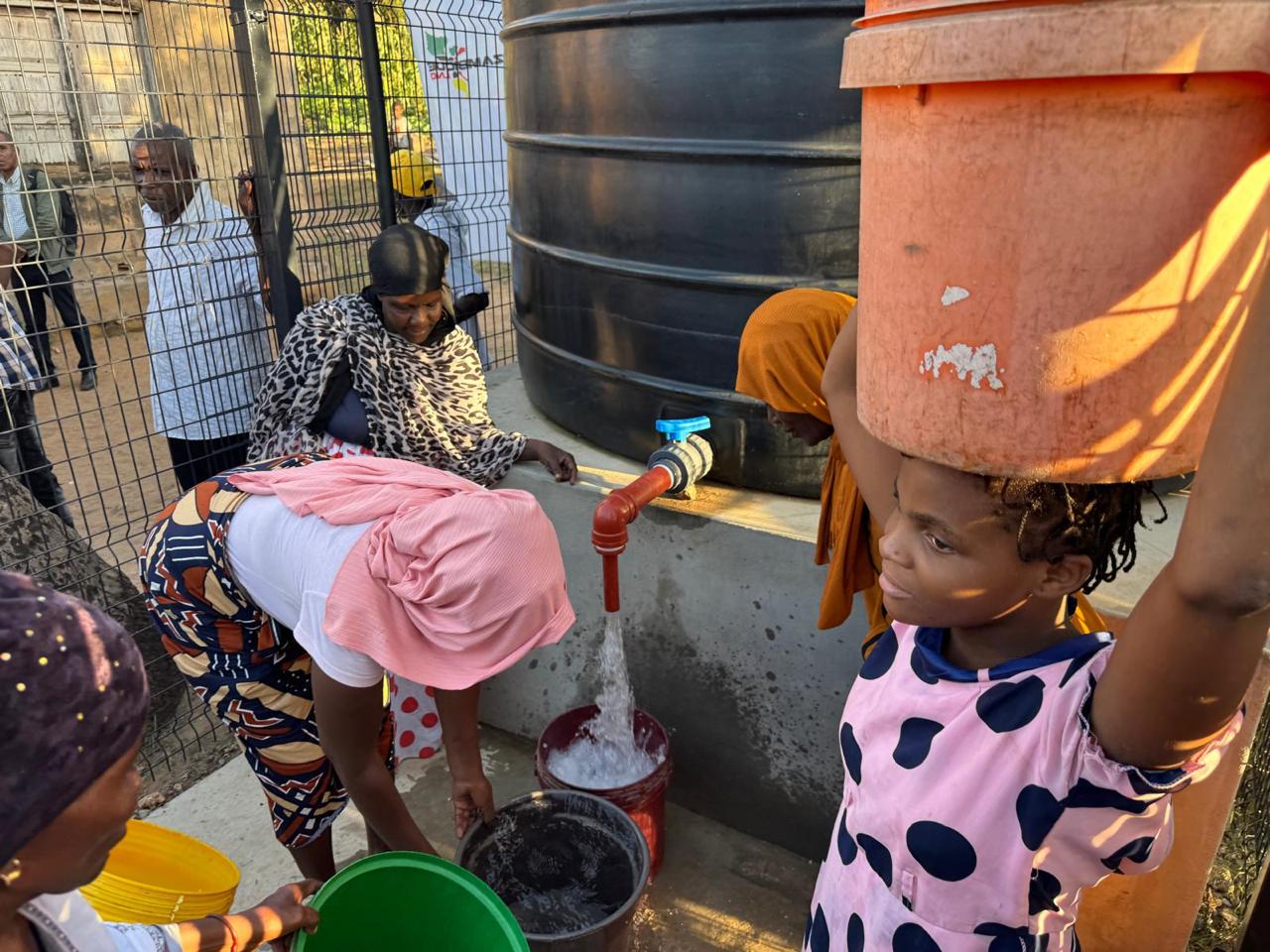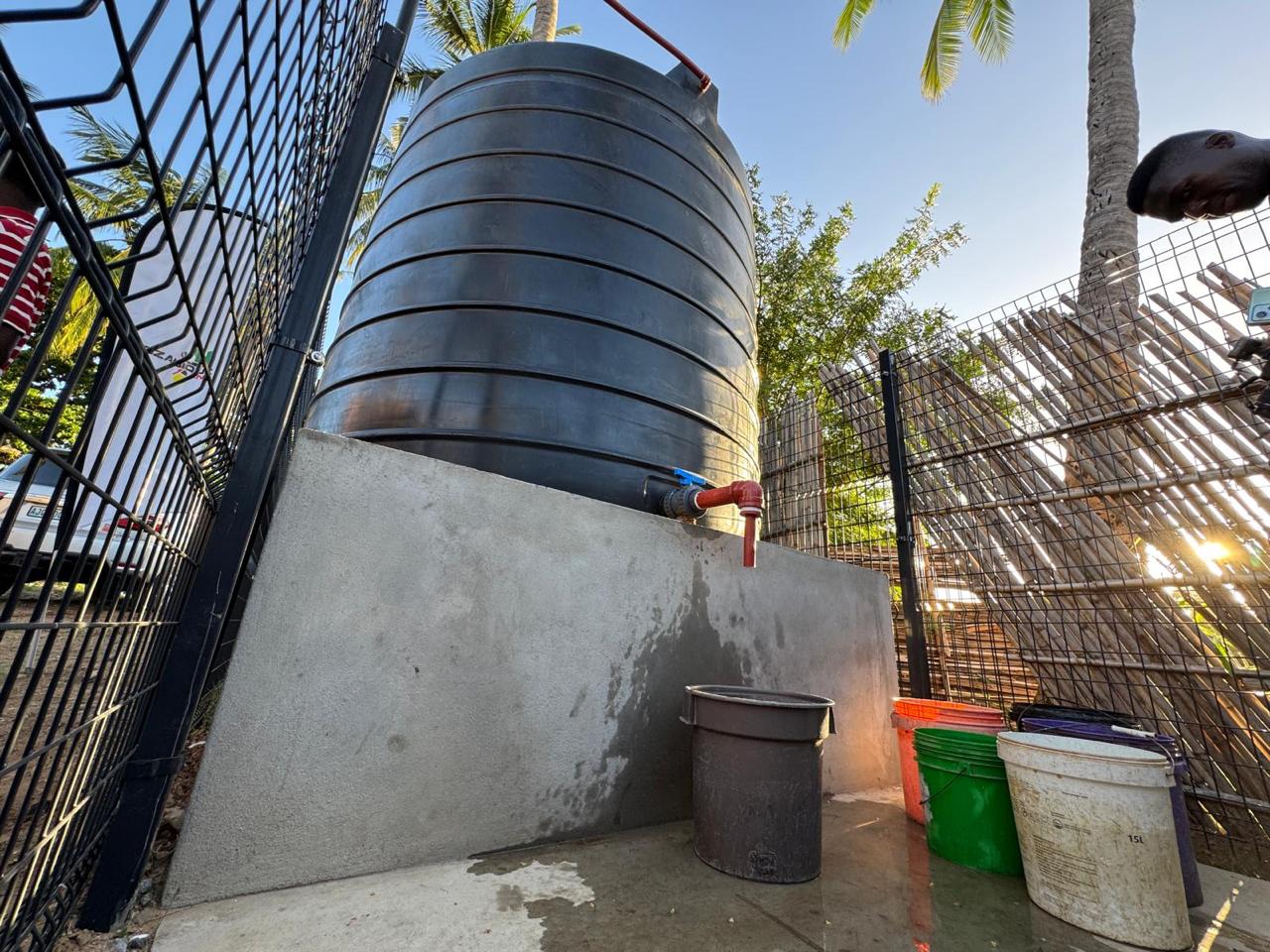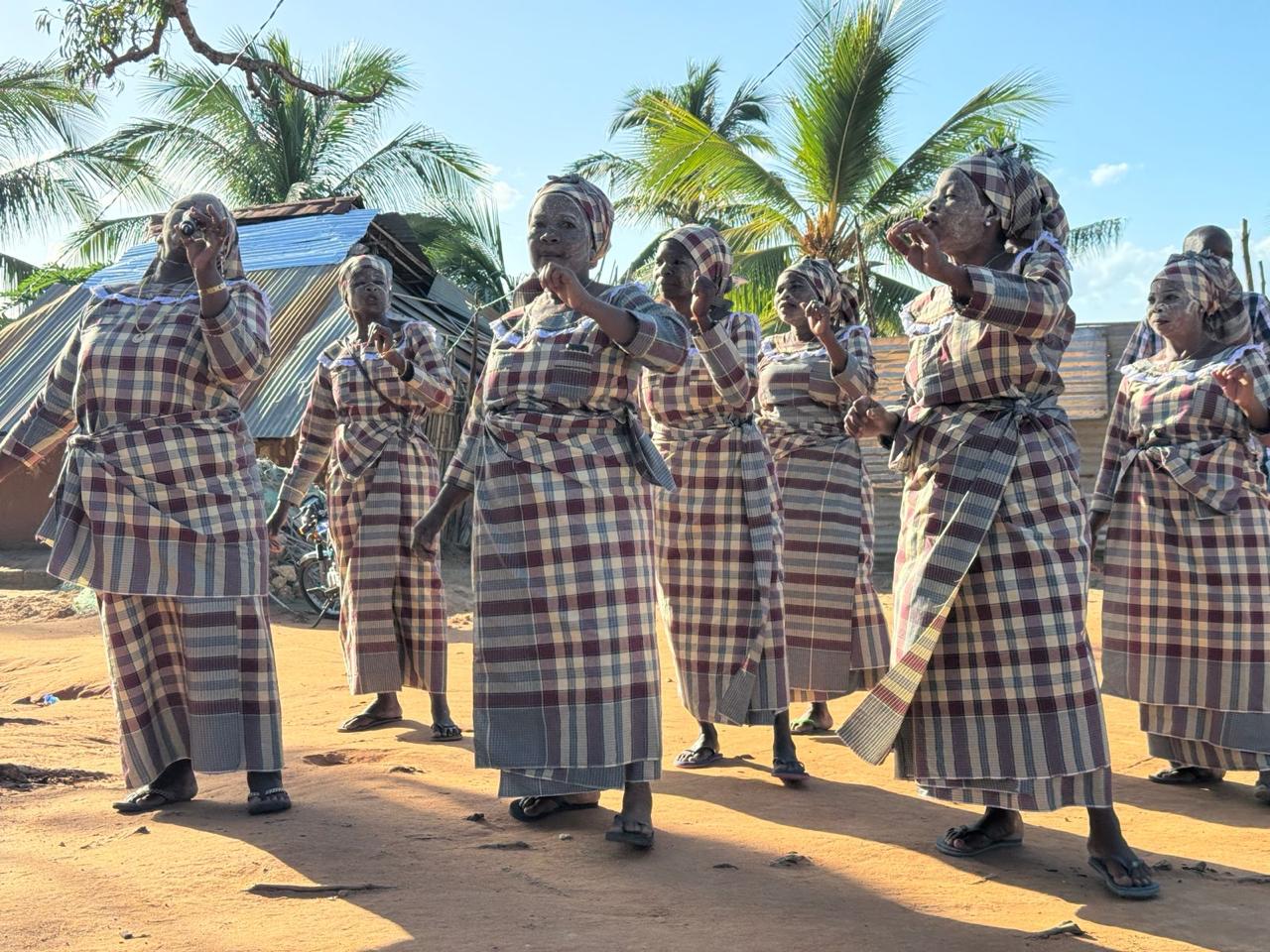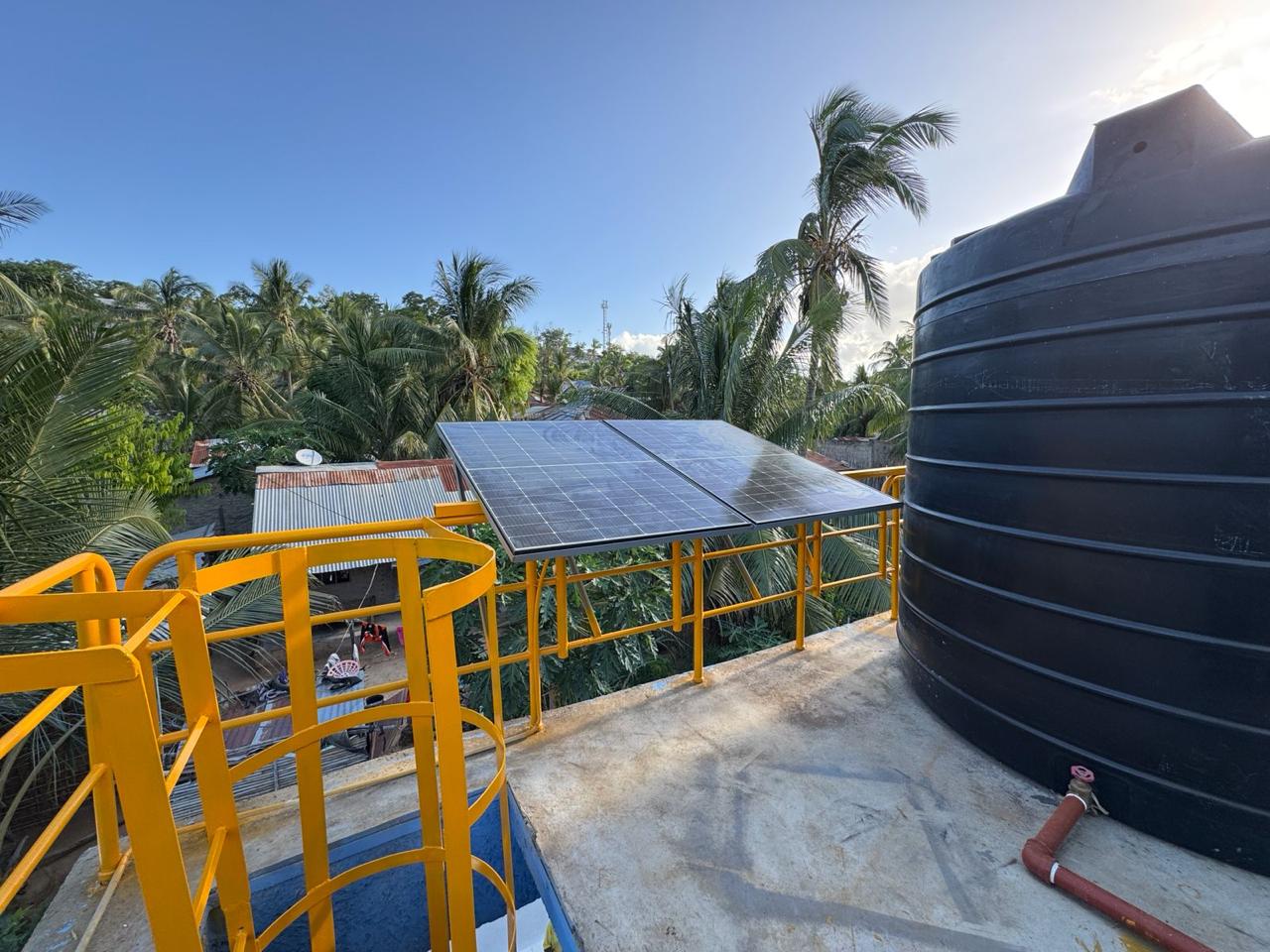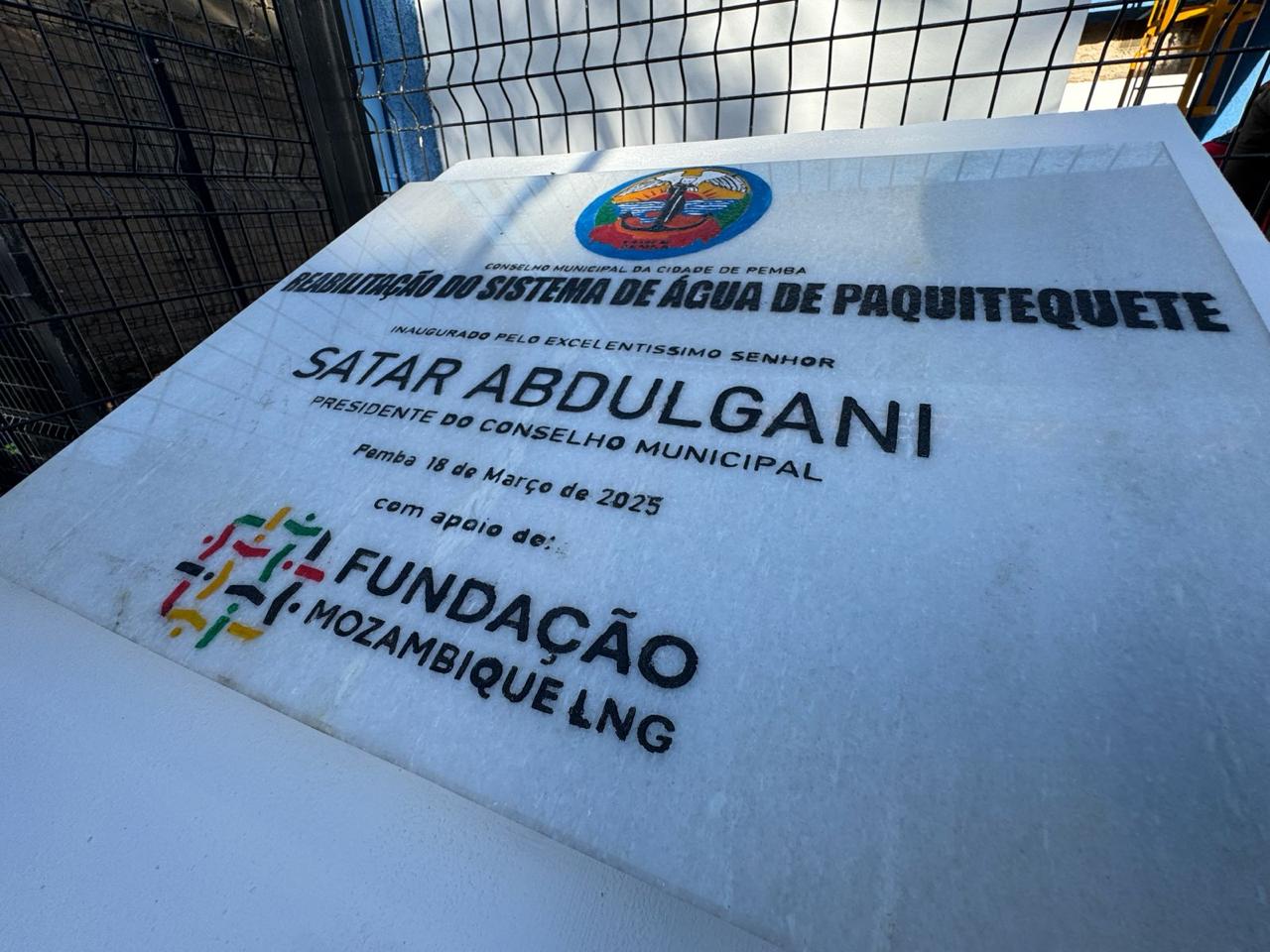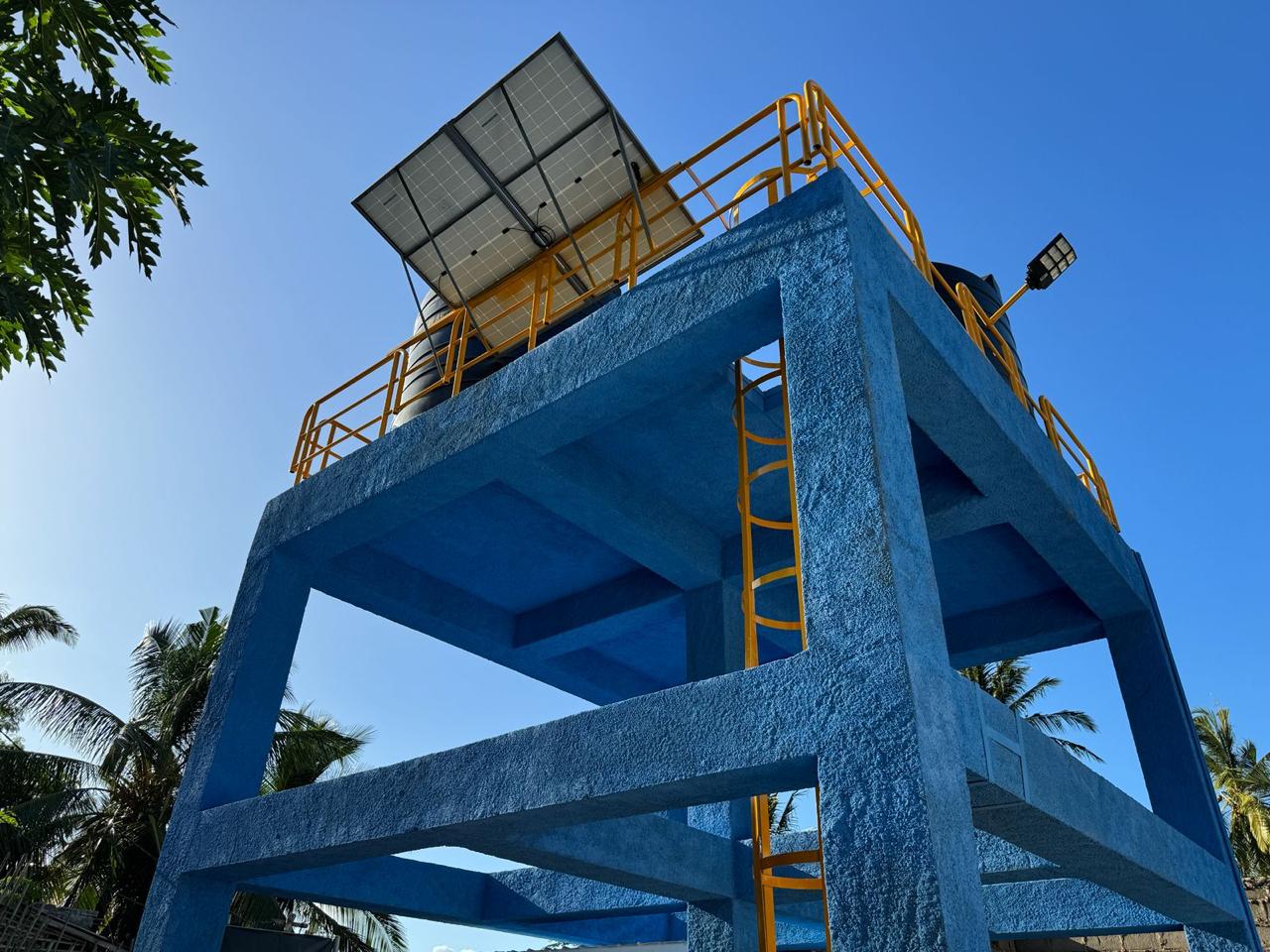On March 18, a new solar-powered water system was inaugurated in Pemba, Mozambique, providing a safe and sustainable source of drinking water for 5.000 families, over 40,000 people, resident in Paquitequete, the oldest neighborhood in Pemba. The $300,000 initiative was developed in collaboration with the Pemba Municipal Council and funded by the Mozambique LNG Foundation.
More than 40,000 people have access to safe drinking water in Pemba, Mozambique
Paquitequete is a historic, very vulnerable and densely populated neighborhood that hosts a large number of displaced people. Water and sanitation conditions are difficult, which makes the supply of drinking water a key concern.
The delivered system has an underground reservoir with a capacity of 300,000 liters, an elevated tank with a capacity of 30,000 liters and a network of solar-powered pumps distributing water through five 10,000-liter stations throughout the neighborhood. This infrastructure improves water quality and reliability, reducing dependence on alternative sources often affected by high salinity levels. A local water management committee was also set up to ensure the full autonomy and sustainability of the infrastructure.
In Mozambique, access to clean water is a significant challenge. According to 2022 data from the World Health Organization (WHO) and the Joint Monitoring Program (JMP), 63% of the population has access to basic water services and only 38% has access to basic sanitation facilities. In Pemba and especially in Paquitequete, difficulties in accessing water are exacerbated by rapid population growth, largely due to internal displacement caused by the insurgency in Cabo Delgado.
This initiative aims to reduce the incidence of disease and mortality, especially among children, through the provision of clean water. It is aligned with the National Development Strategy of Mozambique 2025-2044 and the Resilience and Integrated Development Program for Northern Mozambique (PREDIN). The Government of Mozambique’s effort and commitment to accelerate the coverage of water and sanitation services by 2030 is crucial to improving quality of life and public health.
During the inauguration ceremony, Pemba Municipal Council President Satar Abdulgani emphasized the health and economic benefits of safe access to water, stating, “Safe access to water has significant economic implications. It reduces health risks, strengthens community resilience and supports local businesses. The availability of renewable energy hydro infrastructure also complements broader efforts to integrate sustainable solutions into urban development projects.”

